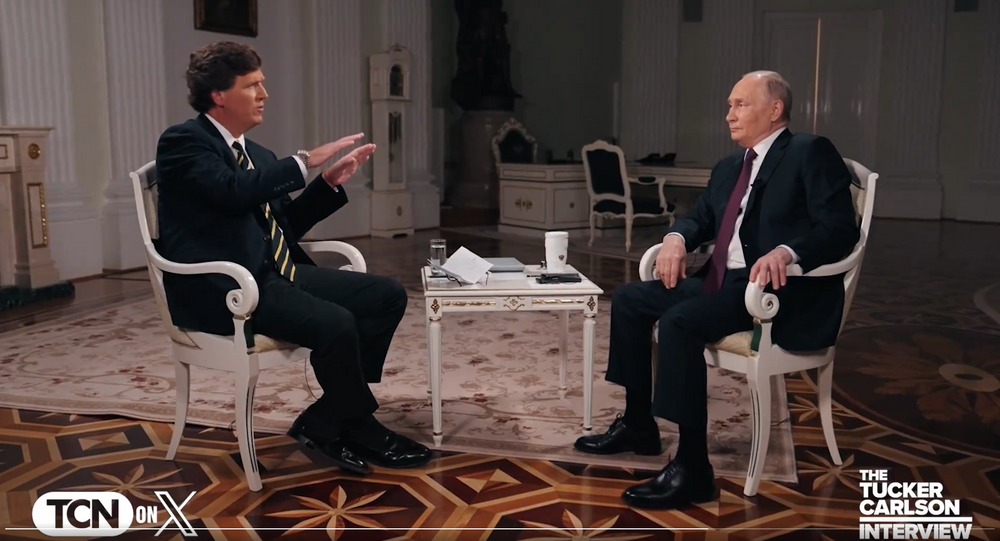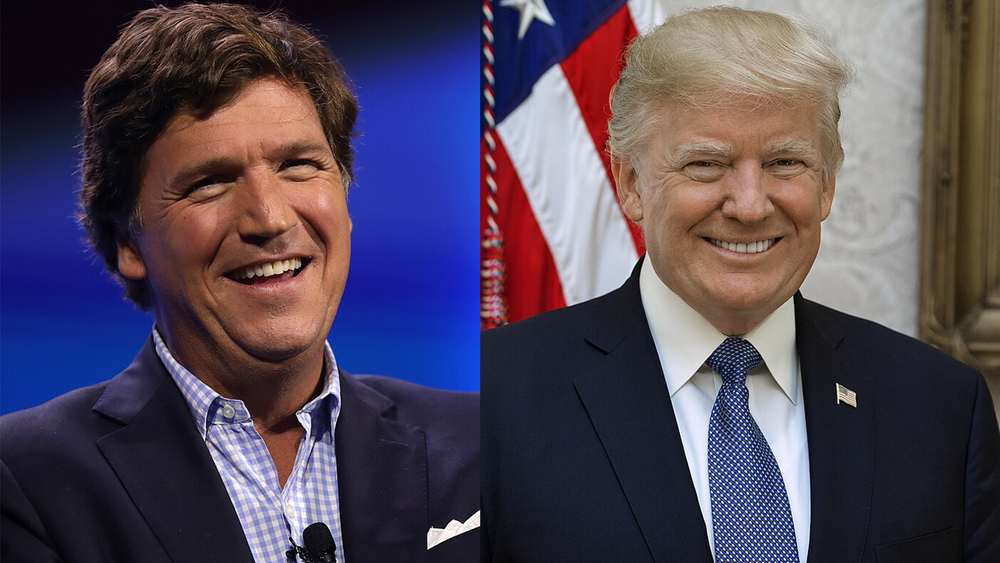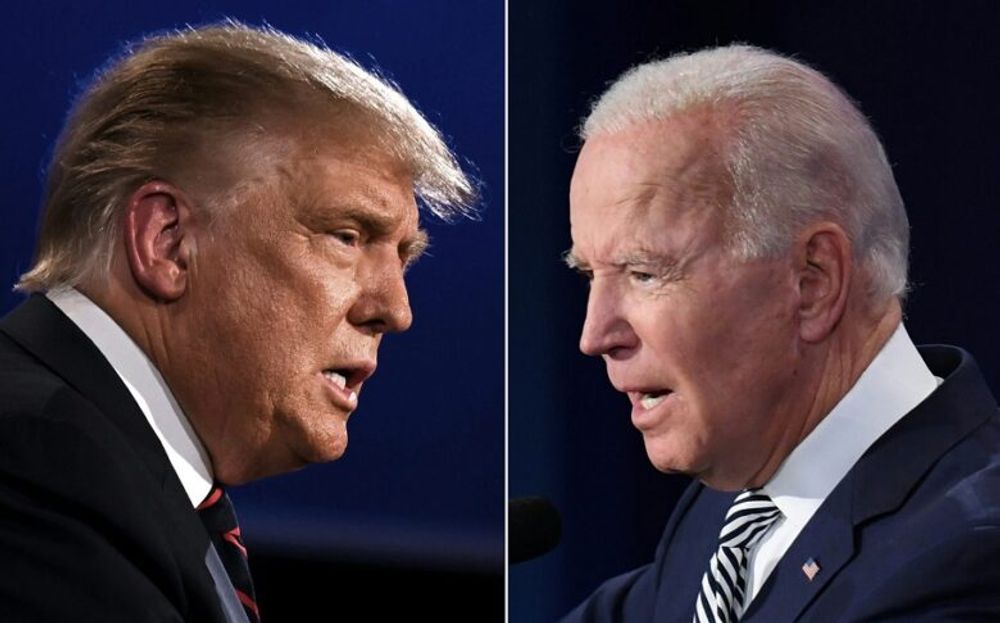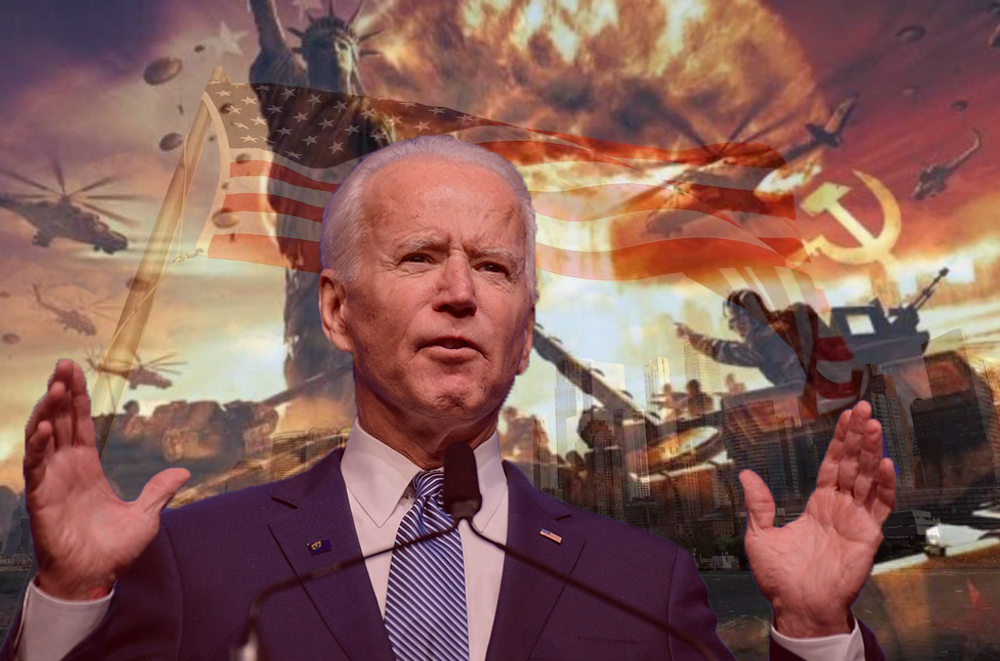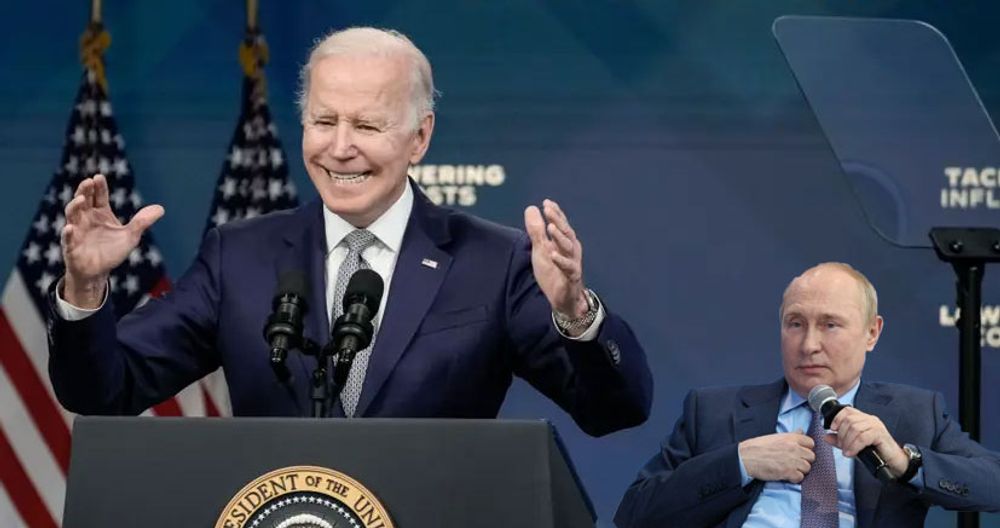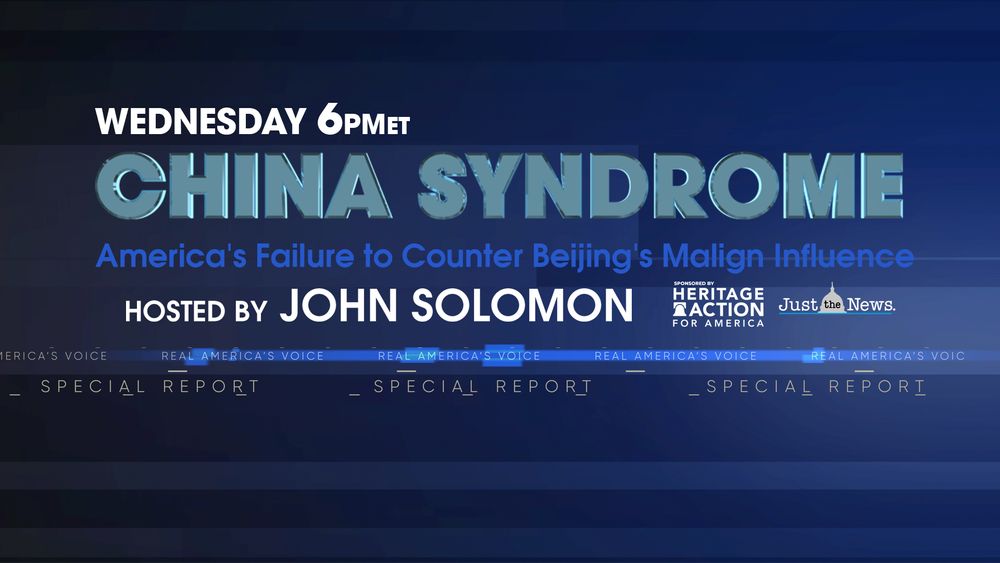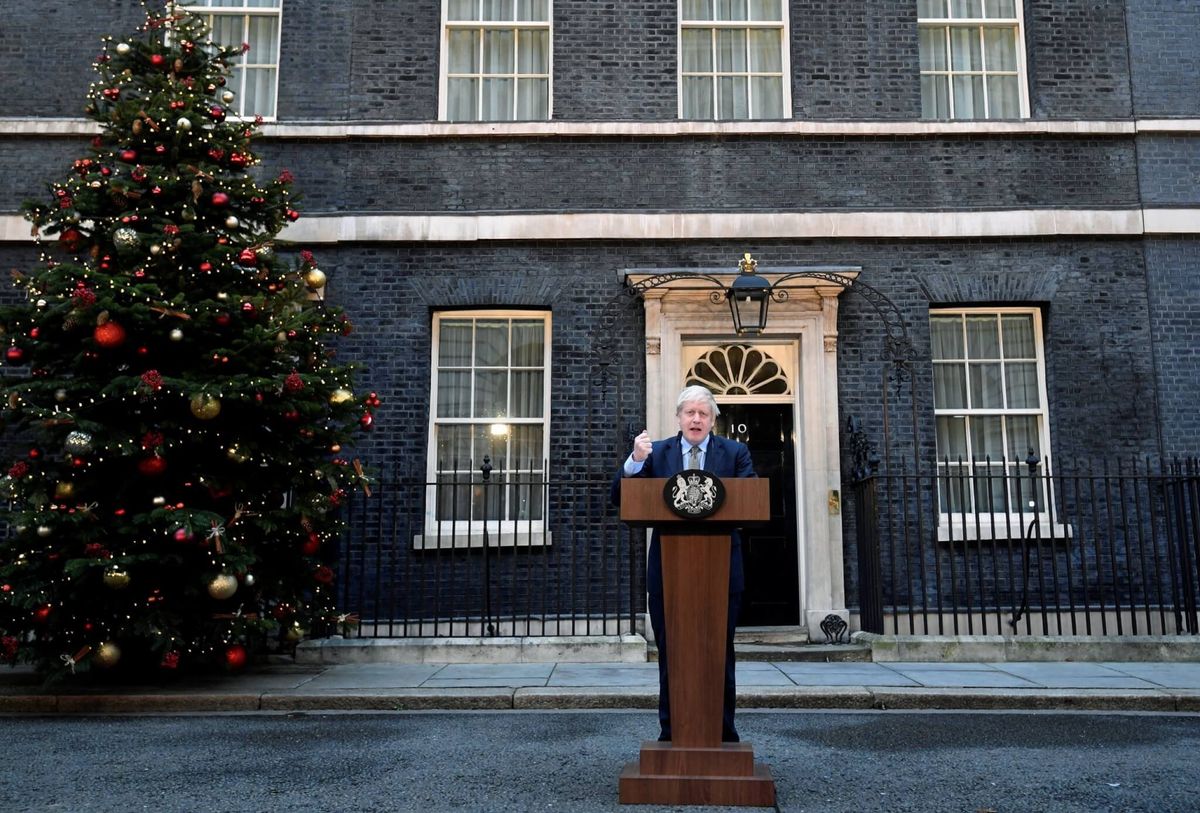
US Democrats Squabble Over Lessons of UK Election
Hours before the official result was complete for Britain’s general election, U.S. Democrats on the other side of the Atlantic were taking to social-media sites to draw quick conclusions on what Labour’s catastrophic defeat might mean for them and the electoral challenge they face with the 2020 White House contest.
Forewarned by an exit poll, which suggested Britain’s storied Labour Party was heading for its worst election rebuff since 1935, one of the first Democrats to hit the send button was Ben Rhodes, a former deputy national security advisor to Barack Obama.
He tweeted: "There are a lot of factors that went into this massive defeat, but progressives have to learn from them to do better on both sides of the Atlantic."
But that begs the crucial question: what lessons?
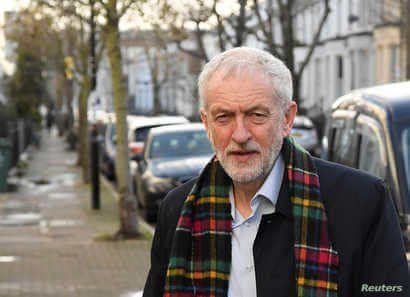
On the British side of the Atlantic, Labour politicians can’t agree about what went wrong for them in what’s likely to be seen as the most consequential British election for a quarter-of-a-century, with some, including defeated party leader Jeremy Corbyn, insisting that the radical socialist policies he advocated, including the nationalization of a swathe of the British economy, were individually popular and that the blame should go on Brexit.
A key Corbyn ally, Len McCluskey, the leader of the powerful Unite trade union, said the policies in the party's manifesto were "very popular," but "we very evidently didn't win the argument over Brexit" and the party’s policy of holding a second referendum on European Union membership. McCluskey said the party's "biggest mistake" was "perhaps underestimating the desire for people who had voted Leave to leave the European Union."
But many Labour moderates believe Brexit-favoring working-class voters who deserted the party in droves would have overlooked the issue of Europe, if Labour had had a more popular and centrist leader and a manifesto shorn of leftwing dogma. In a post-election opinion poll, only 17 percent of Labour defectors cited Brexit as the reason for their switch to the Conservatives.
"Jeremy Corbyn was destined to lead the Labour Party to a catastrophic defeat," according to Jason Cowley, the editor of the New Statesman magazine, Britain’s leading leftwing weekly. "If he believed that the British would vote for the most radical socialist manifesto in our history, he was sadly deluded. The party has learned nothing from past defeats: the more it moves to the left, the more people are alienated," he added in a post-mortem assessment for Britain’s The Times newspaper.
Cowley says Labour has lost touch with Britain’s working-class and the party’s defeat Thursday is a parable of what can go wrong when a party rejects pragmatism for "ideological purity."
Some Democrats in the U.S. worry that might be the case with their own party and say the British election should be seen as window on the 2020 presidential race.
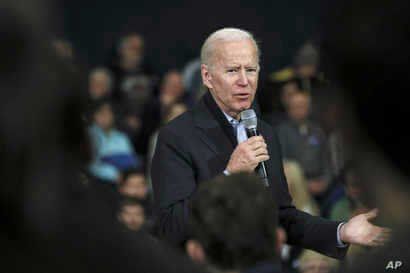
Former U.S. vice president Joe Biden, the current front-runner to win the Democratic nomination to take on Trump, has said that the British election should be taken as a warning against Democrats moving too far to the radical left ahead of the 2020 White House race.
Speaking to supporters in San Francisco, Biden argued that the radicalism of Labour leader Jeremy Corbyn ultimately contributed to Boris Johnson’s landslide victory last week.
Others on the moderate wing of the Democratic Party, too, fear that Labour’s defeat may foreshadow trouble for their bid to vanquish Trump, especially if the Democrats pick a progressive nominee like Bernie Sanders or Elizabeth Warren as their champion in the 2020 presidential election.
Political trends on one side of the Atlantic have often presaged trends on the other, although often with time lags because of misaligned elections. Both countries were moderately conservative in the 1950s and Republican and Conservative governments accepted the welfare systems established by their predecessors in office and ideological rivals, Franklin Roosevelt and Britain’s Clement Attlee.
In the 1960s both countries trended left, although were divided over the Vietnam War. In the 1980s, free-market conservatives — Margaret Thatcher and Ronald Reagan — reshaped their nations’ politics.
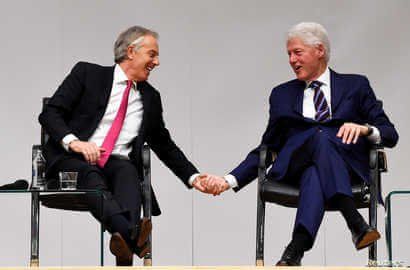
And in the 1990s "Third Way" Democrats, Bill Clinton and Tony Blair, marched almost in lockstep to refashion their parties as market-friendly, seeking to blend center-right economics with center-left social policies. The 2016 Brexit referendum was seen by many, including Donald Trump’s then strategist Steve Bannon and Dominic Cummings, Johnson’s chief of staff, as foreshadowing Trump’s upset a few months later of Hillary Clinton, who saw her candidacy rebuffed in the fading towns of the "rust belt" states much like Corbyn was rejected in the post-industrial north of England.
Nationalist conservatives rule the roost now in Washington and London, prioritizing the nation state over multilateralism and favoring tough immigration restrictions. The skirmishing by Democrats over the British election result is enmeshing with the fight over who should get the party’s presidential nomination.
Democrats favoring a progressive candidate maintain there are no real lessons to draw from Johnson’s election win, echoing Corbyn supporters on the other side of the Atlantic by arguing Labour lost the election because of Brexit. "This UK election was ultimately an election about Brexit, and Brexit won. There’s no clean analogue to that in the U.S," says Kate Aronoff, a senior fellow at Data for Progress, a progressive U.S. think tank.
"The UK election was undeniably bad for Labour, but it doesn't at all vindicate centrists saying the U.S. should make one of them the Democratic nominee. Left policies are popular," she tweeted.
Aronoff, like other U.S. progressives maintain that the kind of centrist politics espoused by establishment Democrats also got rebuffed by British voters in an election that dashed the hopes of Britain’s centrist Liberal Democrats, who presented themselves as a respectable alternative between the Conservatives and Labour. Their leader Jo Swinson even failed to get reelected as a lawmaker.
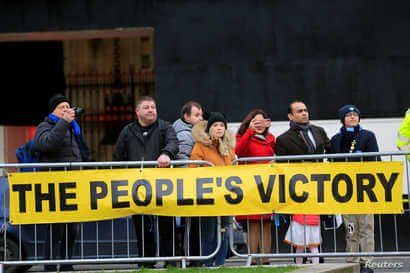
Some commentators who’ve chronicled the rise of populist nationalism say neither moderates nor progressives have the grasped the full scale of the realignment of Western politics that’s underway. The UK vote wasn’t just any election, says Matthew Goodwin, an academic at Britain’s Kent University and co-author of the book "National Populism: The Revolt Against Liberal Democracy." "The old left versus right economic divide continues to make way for a new cultural divide."
He says Brexit was just one factor prompting working-class voters to trade left for right, with other driving issues coming down to promises of immigration reform and prioritizing national independence. Conservative nationalists have hit on a winning formula by leaning left on economics, with promises of increased government spending, and right on culture when it comes to identity politics and pledges to get tough on crime.
Goodwin believes it is easier for the right to move left on economics than it is for the left to move right on questions of national identity which are worrying socially conservative working-class voters.
 Rancor Fills the Airwaves Ahead of Trump ImpeachmentNext PostFull House to Vote on Trump Impeachment This Week
Rancor Fills the Airwaves Ahead of Trump ImpeachmentNext PostFull House to Vote on Trump Impeachment This Week
